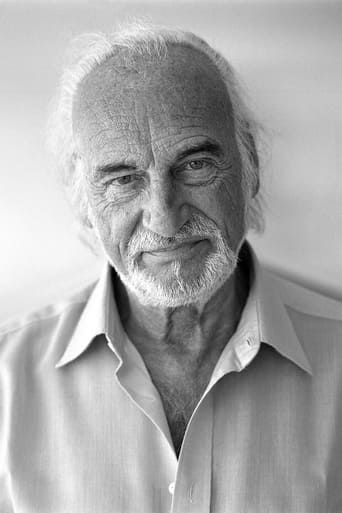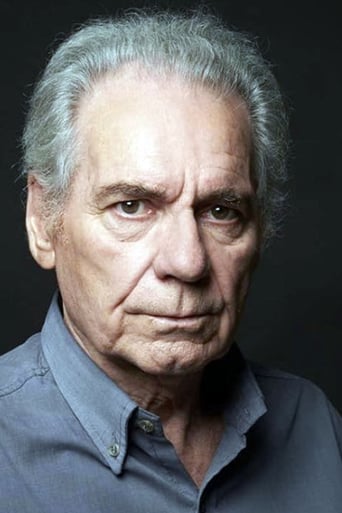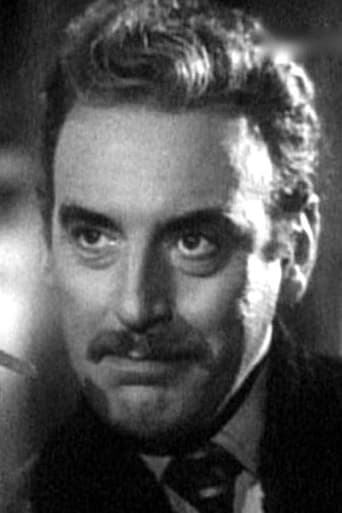Redwarmin
This movie is the proof that the world is becoming a sick and dumb place
Moustroll
Good movie but grossly overrated
MamaGravity
good back-story, and good acting
Matylda Swan
It is a whirlwind of delight --- attractive actors, stunning couture, spectacular sets and outrageous parties.
gavin6942
After the end of the Dirty War, a high school teacher sets out to find out who the mother of her adopted daughter is.Like many progressive actors and others in the country, the lead actress in the film, Norma Aleandro, was forced into exile. She traveled to Uruguay first and Spain later. She returned after the fall of the military government in 1983. Aleandro once said, "Alicia's personal search is also my nation's search for the truth about our history. The film is positive in the way it demonstrates that she can change her life despite all she is losing." Argentina's history is a dark one. It may not get the coverage of Nicaragua, El Salvador or Chile, but it had some of the same problems of unrest in the 20th century. In fact, few places in Central and South America seemed to have it easy, with dictators sprouting up all over. Some of them, sad to say, were put there and / or backed by the United States, something we as a nation have still not properly atoned for.Whether by choice or not, director Luis Puenzo has remained largely an Argentine filmmaker. He did make an American film (or at least a film with American actors) in 1989, "Old Gringo", but then went back to Argentina. One wonders what the difference is that makes some directors go international and others go into relative obscurity outside their home countries.
NICO
"La Historia Oficial" is a movie which certainly reaches out to the hearts and minds of most Argentines. First of all, the main issue which is the cause for the problems which arise in the household of Alicia and Roberto, is one with which the older generation of Argentines has had to deal with in their own lives. Moreover, the reality and discomfort which is seen in various instances during the movie can easily be a picture of what was going on in countless households during that time period. In the movie we see some of what is going on in the government a little bit by the actual protests, but mostly by the situations which surround Alicia. The story of Alicia's friend Ana and the circumstances involving her daughter all point to great distress in the country's government. Whilst the government has much to do with the movie, the story revolves more around the impact which the government has on a simple Argentine family and their relationships with each other.
Eumenides_0
The Official Story explores the crimes of the Argentine regime from an unusual perspective. Whereas movies of this nature like to give voice to guerrillas, journalists, the common man or innocent foreigners, Luis Puenzo's drama depicts the life of Alicia, the well-to-do wife of an army officer, Roberto. Evidently life is good for them; Alicia is a high school history teacher blissfully unaware of the crimes her happiness is built on.But one day Alicia starts wandering about the origin of her daughter, Gaby: Roberto brought her home and Alicia always believed she came from a mother who didn't want the child or couldn't keep her. But what if Gaby is the child of a woman who was murdered by the regime? What if the mother is one of the many 'missing'? What if there is still family looking for the child? From this premise Luis Puenzo and his screenwriter Aída Bortnik – author of the La Tregua, another critically-admired Argentine movie – paint a portrait of an entire society coming to terms with their past and the truth.I found the movie extremely slow, but not in the good way that Antonioni or Kubrick can be slow while marveling the viewer with unique camera work and cinematography. This is just a well-written drama without extraordinary visual feats, with strong performances from all the characters. Towards the end the movie starts picking up and the climax is unforgettable. Although I didn't love this movie as much as a I wanted – being a big fan of Argentine literature – I still recommend watching it for the conflict that is at the heart of the movie.
Alfia Wallace
La Historia Official is a well-made film about awakening from passive complicity in evil, in this case, forced adoption. The Grandmothers of the Plaza de Mayo were and are an inspiration to those who struggle to uncover and resist abuses in adoption practices, be they the enslaved Irish women of the Magdalen laundries or the many indigenous peoples who had children forcibly removed from homes to be adopted by whites. Most of adoption does not involve abduction, but to turn a blind eye to the fact that it does exist, is to be passively complicit, as was the protagonist in this film.The scene in which the teacher realizes that tremendous evil has indeed been perpetrated, and that she may very well be the beneficiary of such evil, is staggering. Norma Aleandro is a talented enough actress that we believe her initial rejection of this revelation, and her gradual evolution from passive cohort to courageous seeker of the truth.





